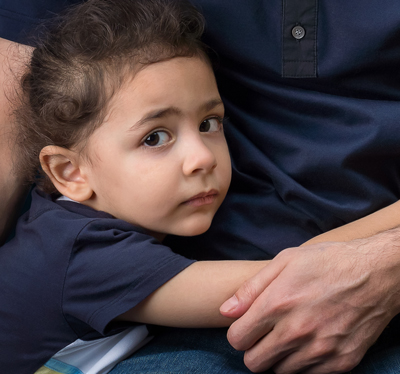The Iowa Legislature recently passed and the Governor signed legislation which makes significant changes to the Iowa law regarding guardianships and conservatorships for adults and minors. Last month my blog dealt with the changes regarding guardianships for adults and conservatorships for adults and minors. This month I will discuss changes for guardianships for minors. The new law will apply to new minor guardianships opened after December 31, 2019 and will also apply to minor guardianships which were opened prior to January 1, 2020.
The provisions in the Code regarding minor guardianships have been moved from Chapter 633 to Chapter 232D. Jurisdiction has been moved to juvenile court in the district where the minor resides or is located. In addition, the Court will not appoint a guardian unless it finds that the minor’s parents have died or consented to the appointment of the guardian or the minor’s parents’ parental rights have been terminated, or that the minor is the subject of a CINA proceeding; or that the minor’s parents have shown a lack of consistent participation in the minor’s life. The new Act also requires additional items in the petition and the notice to interested parties. The new Act also sets out new conditions or circumstances regarding the appointment of temporary or emergency guardians for minors.
The new Act also provides that the parents of the minor are entitled to court appointed representation if they file an objection to the petition and request representation and are able to show their inability to pay for an attorney to represent them. In addition, the new act sets out new CLE requirements for court appointed attorneys who represent parents of minors.
The new Act also changes the name of an attorney who is appointed to represent a minor and a guardian ad litem appointed to represent a minor. Under the new Act, such persons are now referred to as “court visitor”. The new Act sets out the duties of the “court visitor”. Another change is that the new Act requires background checks for all proposed guardians. The check must cover criminal matters, child abuse, dependent adult abuse and sex offender registry.
Under the new Act, a court appointed guardian must file a verified care plan within sixty days of their appointment as guardian. The verified care plan is required to set out details of plan of living arrangements, payment of living expenses, meeting health care needs, meeting educational training and vocational needs, facilitating contact with the minor’s parents, and a guardian’s plan for contact with the minor and activities on behalf of the minor. The new Act requires guardians to file annual reports within thirty days of the close of the reporting period. Such report shall include detailed information as to compliance with the initial care plan. Finally, the new Act sets out grounds for termination of minor guardianships. Such items include the minor’s death, attaining majority, adoption, and other factors affected by whether the parents consented to the guardian’s appointment.
As set out in my blog article last month, I attended the annual meeting of the Iowa State Bar Association and listened to an excellent presentation on the new legislation by Susan Pence of Cedar Rapids, Iowa. Susan recommends that for minor guardianships which were open prior to January 1, 2020, the guardians file with the court before the end of the year a verified care plan. The verified care plan shall request authority for the guardian to do everything they currently do on the ward’s behalf and authority to perform any and all other responsibilities under Sections 633.635 and 633.669.
If you are involved in a minor guardianship which is pending at this time, you should meet with the attorney representing the minor’s guardianship to make sure the steps are taken to meet the requirements of the new law before January 1, 2020.